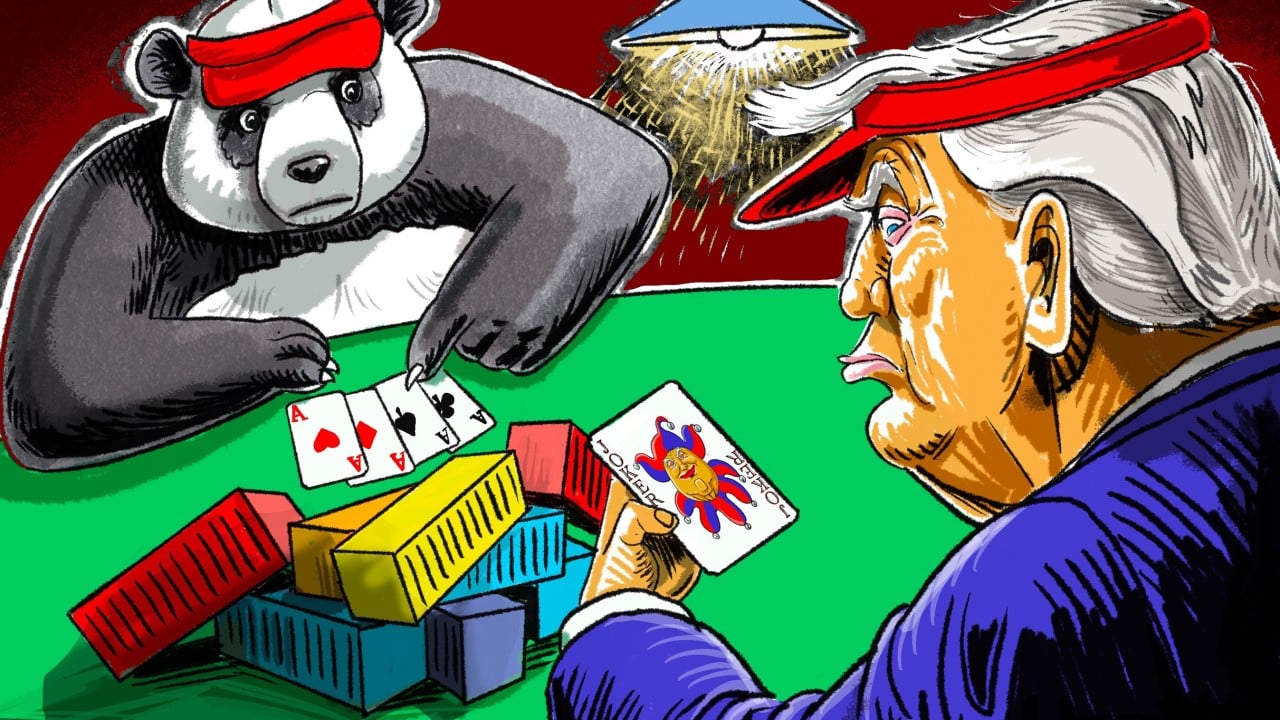Nearly a month into US President Donald Trump’s self-proclaimed “Liberation Day” trade war, Washington has retreated, at least temporarily, on tariffs against most nations – even admitting its sky-high duties on Chinese imports are unsustainable. Trump has extended multiple olive branches to start negotiations with President Xi Jinping.
Advertisement
Yet Beijing’s resolve remains unshaken: no negotiations unless the tariffs are lifted. While Washington and the world initially underestimated China’s swift counterpunch to Trump’s trade 2.0 escalation, they now recognise Beijing’s stronger hand – and its refusal to blink in this high-stakes stand-off.
The irony? China’s response has been measured, almost restrained. It matched Trump’s tariffs tit-for-tat until brushing off symbolic hikes beyond 125 per cent. Since Trump’s initial tariff hikes in February, China has challenged US policies at the World Trade Organization, restricted critical mineral exports and vowed to fight “to the end” against American hostilities. Such moves, while standard for targeted retaliation, stand out because most nations lack China’s economic clout and political grit to confront the US head-on.
For now, Beijing appears content to play defence. Despite being well prepared, it knows a trade war has no winners. Losing access to the US market and advanced technology products could damage China’s economy and derail its 5 per cent annual growth target. Its strategy seems to hinge on forcing the US to negotiate as an equal, trading concessions for a “big deal” to de-escalate tensions.
A bilateral truce could soothe markets, stabilise economies and pause the trade war’s damage, provided Trump – ever erratic – settles for short-term gains. But his obsession with “winning” against China, coupled with murky goals, makes a lasting pact uncertain.
Advertisement
The new Trump trade war has infuriated the Chinese public, with many taking to social media to reject US belligerence. Outrage simmers over America’s habit of blaming its own systemic failures and mounting economic ailments on China and the world. Even seasoned academics and policymakers are exploring retaliatory options and debating whether settling for a bilateral deal heavy on concessions serves China’s interests.

